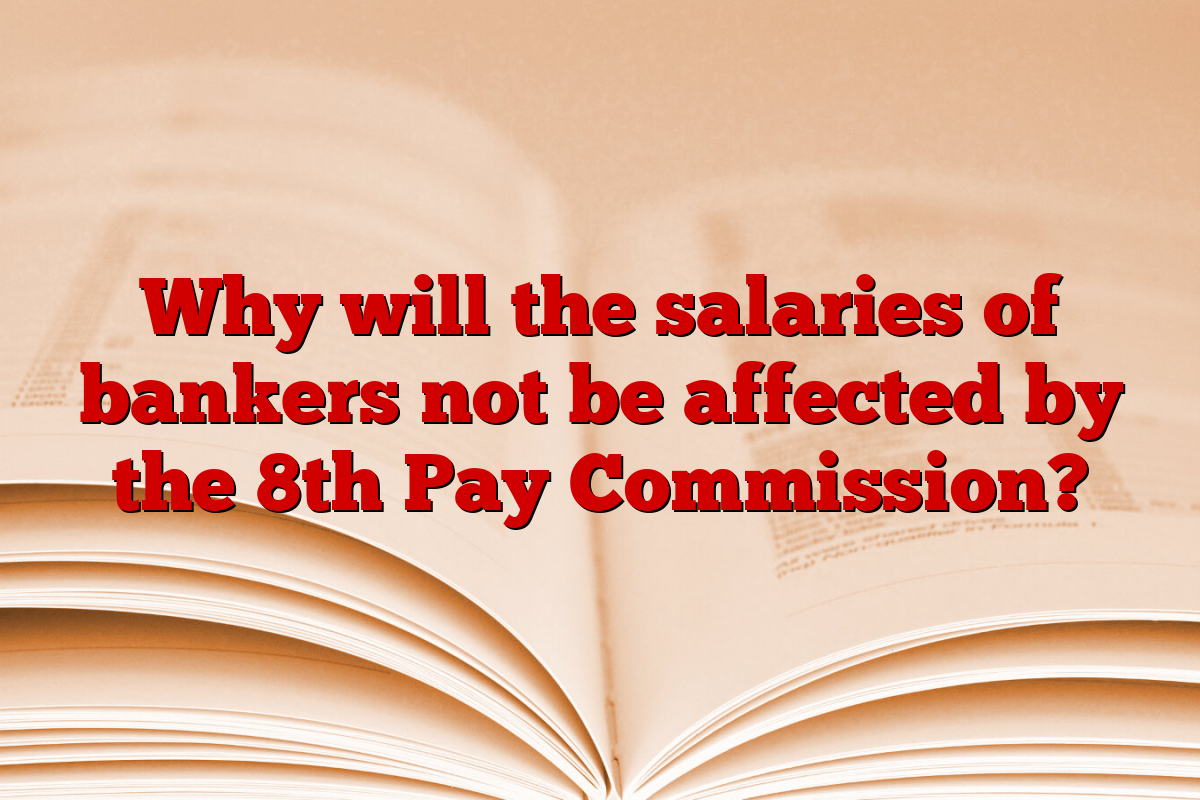The 8th Pay Commission has been a topic of significant interest especially for government employees from various sectors. However, for employees of public sector banks, co-operative banks and regional rural banks, the pay structure is governed independently of the recommendations of the Central Pay Commission. The salaries of public sector bankers will not be affected by the 8th Pay Commission due to the independent and sector-specific mechanism. bilateral settlements,
Why will the salaries of bankers not be affected by the 8th Pay Commission?
A bilateral agreement, this autonomy allows the banking industry to address its unique challenges and needs without being constrained by government wage structures. As the banking sector continues to grow, these agreements will remain the primary tools for modulating wages and ensuring that the workforce is adequately compensated for their important role in the country’s economy.
Here’s an in-depth look at why bankers’ salaries will be unaffected by the implementation of the 8th Pay Commission:
1. Independent pay mechanism for bankers
Unlike other government employees, whose salaries are determined by the Pay Commission, the remuneration of bankers is regulated by bilateral settlementsThese agreements are negotiated between Indian Banks Association (IBA)Which represents public sector banks and bank unions. This collective bargaining process ensures that wage revisions are tailored to the specific needs of the banking sector rather than following a uniform government framework.
2. Bilateral Settlements: A Sector-Specific Approach
The bilateral settlement approach makes the pay structure more aligned with the dynamics of the banking industry rather than the general framework set by the Central Pay Commissions. This process takes place approximately every four-five years and takes into account the following:
- Industry-Specific Profitability.
- Operational needs of banks.
- Economic conditions.
- Inflationary trends.
3. No direct relation between Pay Commission and bankers’ salaries
Central Pay Commissions including the upcoming 8th Pay Commission mainly address pay, allowances and pensions central government employees And employees of Union Territories. Public sector banks, despite being government owned, are classified as commercial enterprises and do not fall into this category. Therefore, the Pay Commission recommendations have no jurisdiction over the salaries of banking employees.
4. Current framework for pay revision of bankers
There is a revision in the salaries of bankers Bilateral Wage Settlement Agreement. latest amendment under 12th bilateral agreementWhich came into effect in 2024, introduced substantial salary increases and additional benefits for bank employees. The 13th bilateral agreement to be reached in the coming years will address any amendments, keeping banking employees unaffected by the 8th Pay Commission. These include:
- Basic salary increase.
- Adjustment in Dearness Allowance (DA) based on inflation.
- Increase in House Rent Allowance (HRA), medical benefits and other allowances.
5. Autonomy of the banking sector
Public sector banks enjoy operational autonomy in various aspects including employee compensation. This autonomy ensures that pay structures are designed to reflect the following:
- Nature of work in banking.
- Competitive salaries to retain talent within the region.
- Performance-based incentives are not a feature of government pay structures.
6. Inclusion of additional benefits for bankers
While central government employees benefit from the pay commission, bank employees enjoy special benefits of their own, which include:
- JAIIB/CAIIB Salary Increase.
- Performance linked incentives.
- Industry-standard perks like special allowances, petrol reimbursement and leased accommodation benefits. These allowances are sector-specific and beyond the scope of the Pay Commission.
7. Impact of technological progress
The banking industry has witnessed rapid technological advancements, which has led to the need for specialized skills and knowledge among employees. The pay structure of bankers often reflects the demand for specialization, which is not addressed by the Generalized Pay Commission recommendations. The focus remains on rewarding sector-specific skills and roles.
8. Focus on profitability and market competition
Public sector banks operate in a competitive market environment where profitability is an important factor. Employees’ wages are closely linked to banks’ financial performance and the overall health of the economy, ensuring that the revisions are sustainable. This performance-based model differentiates banking salaries from Pay Commission guidelines.
